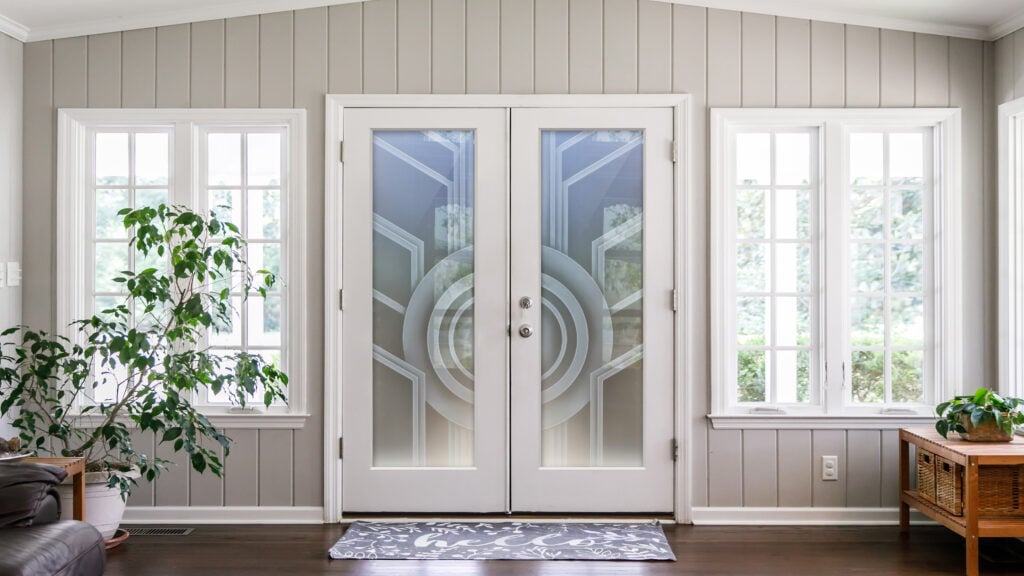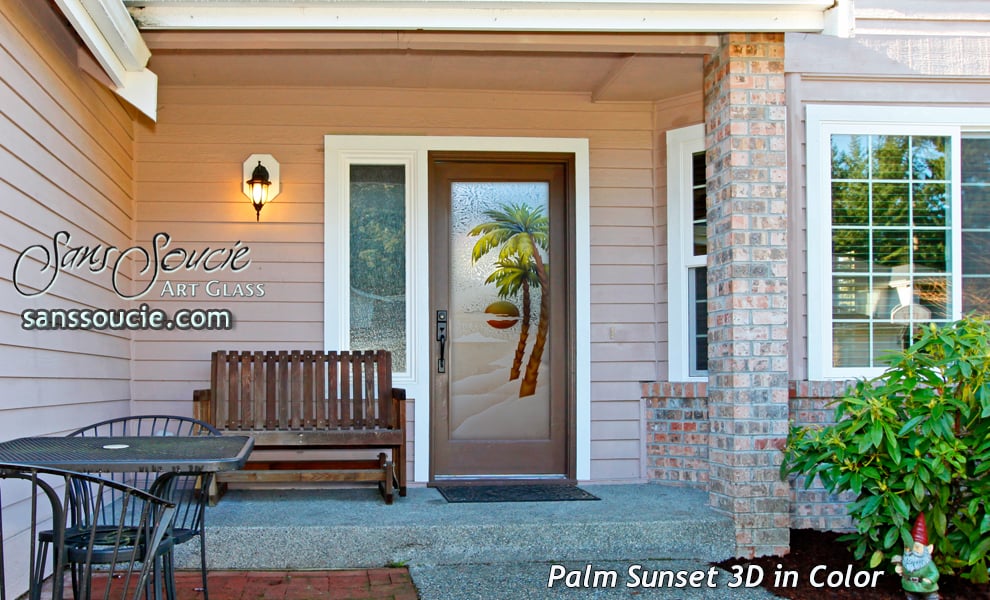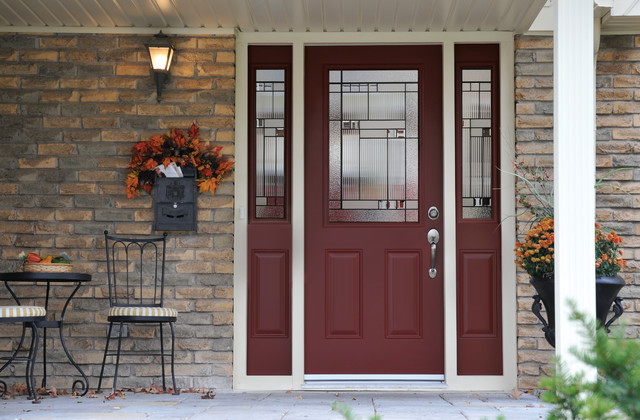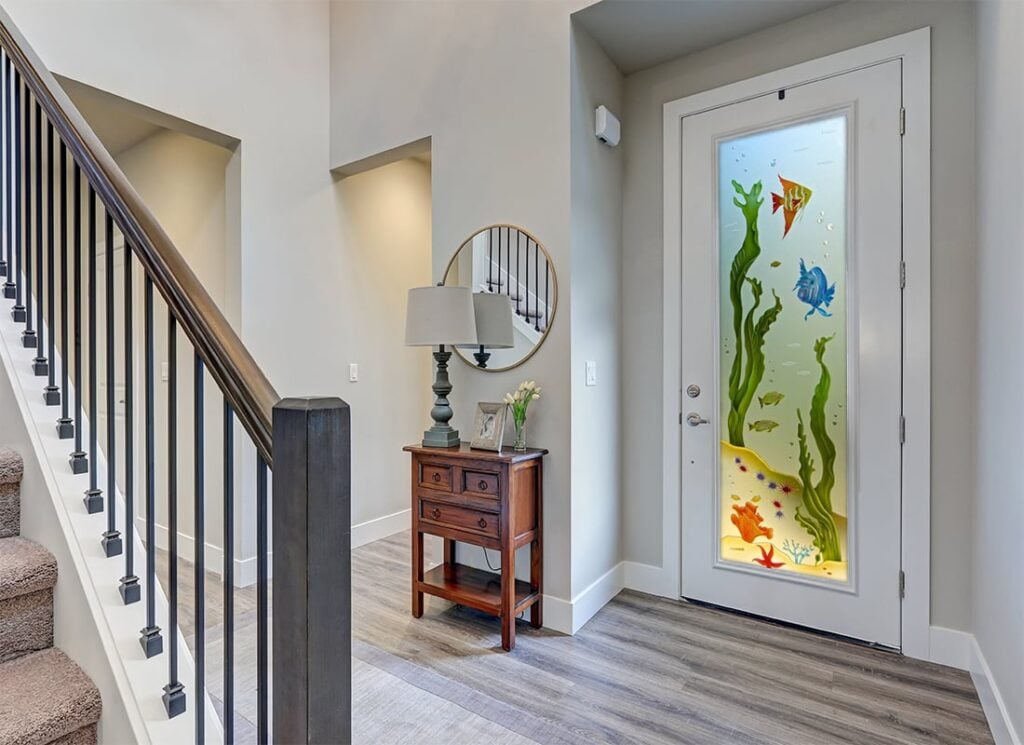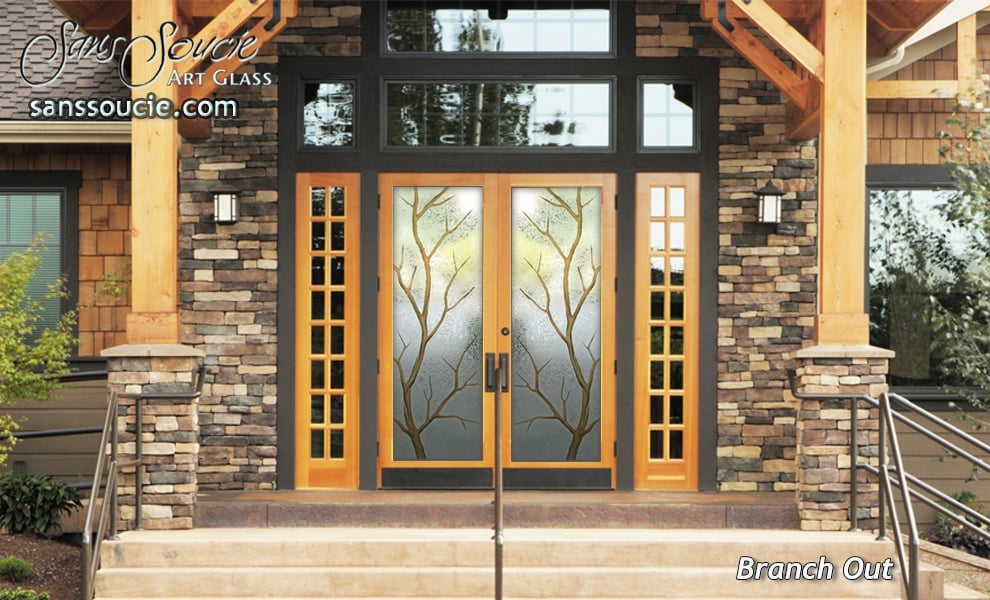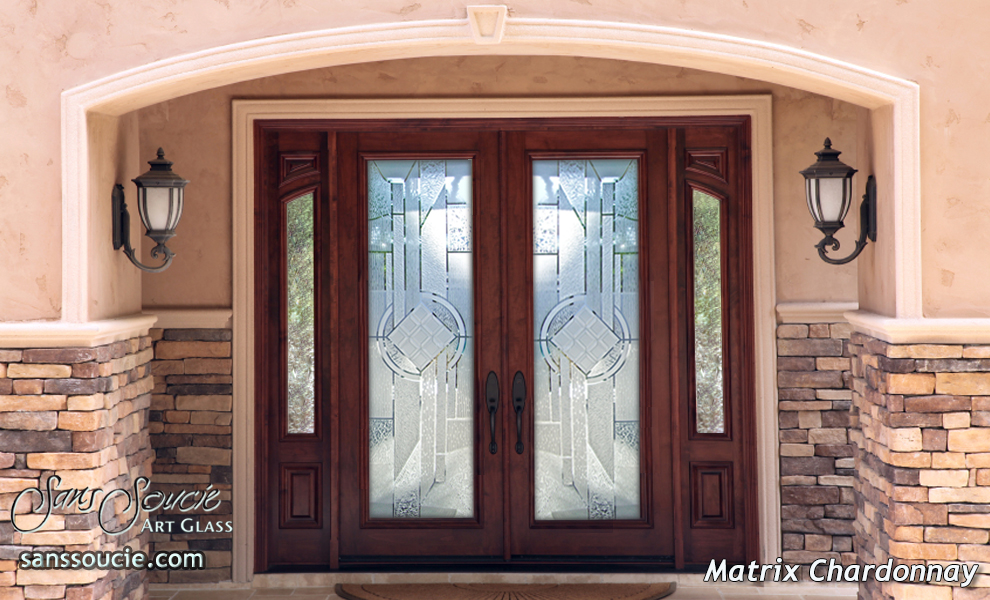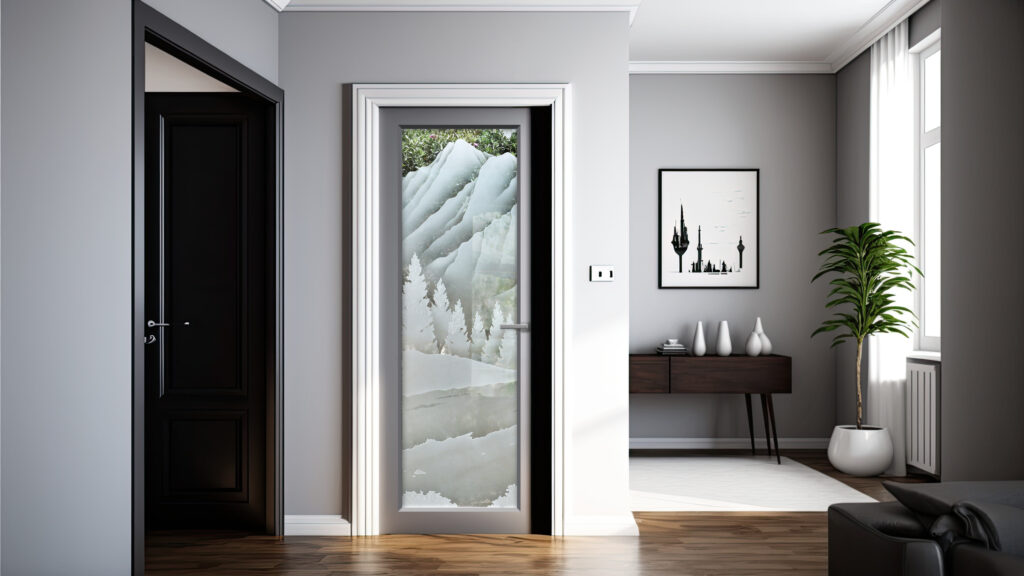The Key to Security: Exploring the Safety of Glass Doors
Glass doors not only add a modern touch and enhance curb appeal but also raise questions about the safety of glass doors and privacy. Fear not, as today’s glass doors offer a multitude of safety features and options that cater to homeowners’ needs. Let’s explore the various types of glass doors and how to ensure their security, boost energy efficiency, and maintain privacy without compromising on style.
Key Takeaways
- This article provides an overview of the different types and features of glass doors, including tempered and laminated safety glass for increased security.
- Enhancements such as security film, reinforced frames, upgraded locks and frosted/rain glass can provide additional protection while still allowing natural light to enter.
- Insulated glass with low-E coatings improve energy efficiency by preventing heat transfer in order to reduce energy costs.
Understanding the Types of Glass Doors
Choosing an appropriate glass door type is vital to ensure a balance between safety and aesthetics. There are three main types of glass doors: full glass, partial glass, and decorative glass doors, each with distinct features and advantages. Most glass doors utilize safety glass, such as tempered or laminated glass, which ensures enhanced strength and durability.
We will now discuss the unique characteristics and advantages of each type of glass door, including entry door options.
Full Glass Doors
Full glass doors, such as patio doors, offer maximum natural light and stunning views, creating an inviting atmosphere. They come in various styles, including:
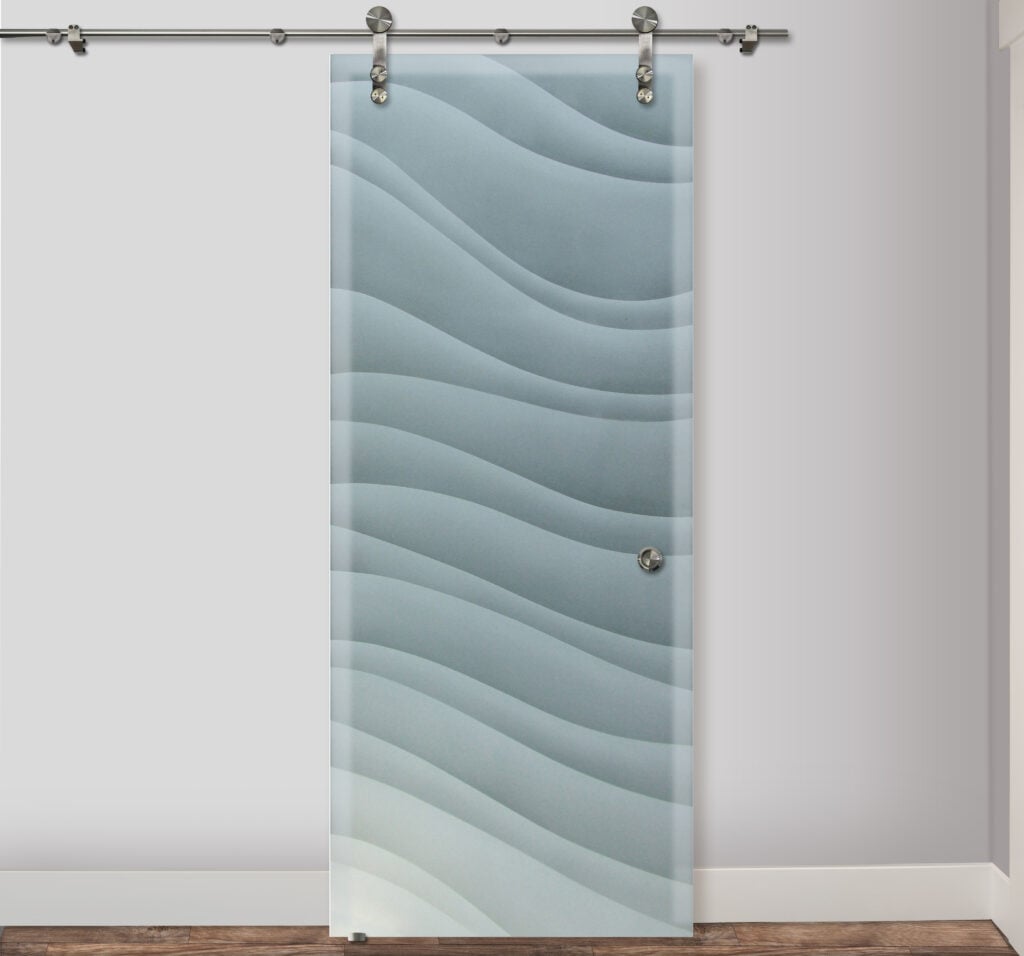
- sliding glass doors
- pocket glass doors
- hinged glass doors
- folding glass doors
However, some may have concerns about security and privacy with full glass doors. Thankfully, advancements in glass technology have made these doors safer and more resistant to breakage.
While full glass doors are visually appealing and allow plenty of natural light, they may pose concerns regarding energy efficiency. Glass is a poor insulator, leading to increased energy consumption for heating or cooling your home. Nevertheless, the energy efficiency of a full glass door can be significantly enhanced by employing double-paned glass and ensuring proper sealing around the door frame.
Partial Glass Doors
For those seeking a balance between light and privacy, partial glass doors offer an excellent solution. These doors combine solid materials, such as wood or metal, with glass panels, creating a functional and visually appealing door. Available options include:
- Sliding doors
- French doors
- Bi-fold doors
- Pivot doors
- Stacking doors
Partial glass doors provide the following benefits:
- Adequate natural light
- Privacy options such as privacy film, curtains, blinds, tinted, glue-chipped, or frosted glass, and smart glass technology
- Improved ventilation
- Design adaptability
- A sense of division while still letting light in.
Decorative Glass Doors
Decorative glass doors add a touch of elegance to any entrance, featuring intricate designs and patterns. These doors maintain privacy and security while showcasing unique styles and artistic works captured in glass. The manufacturing process involves combining various glass textures and designs held together by metal caming. Decorative glass is then sandwiched between two panes of regular glass to create a triple-pane structure.
The exquisite designs of decorative glass doors offer an eye-catching and sophisticated look to your home, enhancing its curb appeal without compromising on safety. These doors provide a stylish alternative to traditional glass doors, allowing you to express your personality and taste while still maintaining the security of your home.
Safety Glass: Tempered vs. Laminated
When it comes to safety, tempered and laminated glass are the top choices for glass doors. These safety glass options provide increased security, durability, and resistance to breakage, ensuring your home remains protected.
Now, let’s distinguish between the characteristics and advantages of tempered and laminated glass.
Tempered Glass
Tempered glass, also known as safety glass, undergoes controlled thermal or chemical treatments to enhance its strength compared to regular glass. It is about four times stronger and is often used in car windows, shower doors, and other applications where heightened safety standards are required. If broken, tempered glass shatters into small, rounded pieces instead of sharp shards, reducing the risk of injury.
The production of tempered glass involves subjecting annealed glass to a thermal tempering process, where the glass is heated and rapidly cooled. The result of this process is a significantly stronger and more pressure-resistant glass, which is less likely to shatter, making it a preferred choice for glass doors.
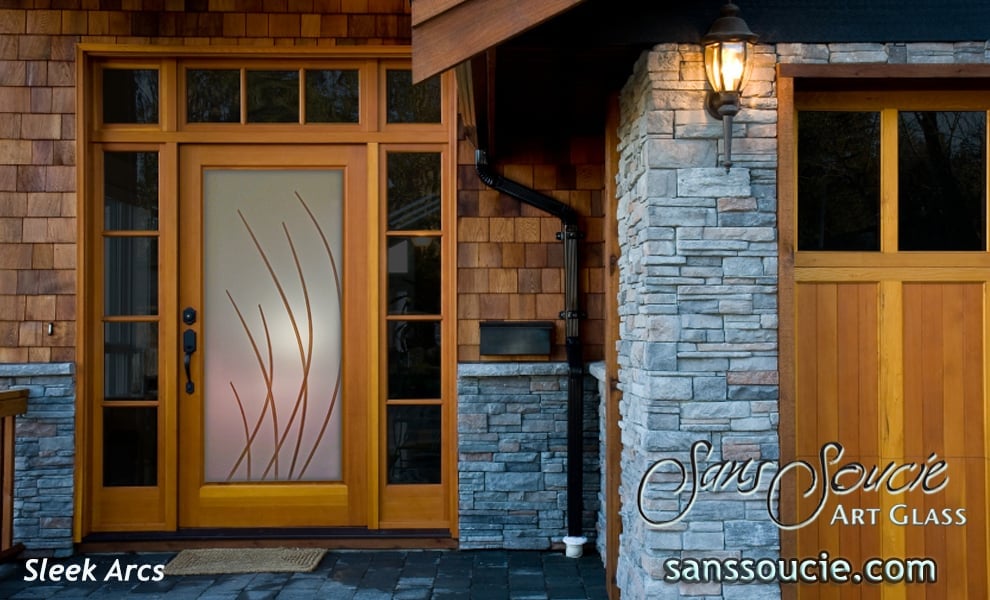
Laminated Glass
Laminated glass consists of two or more pieces of glass sheet with a polyvinyl butyral (PVB) resin glue film interposed between them. This composition provides additional security and noise reduction benefits. Laminated glass is tough, resists strong impacts, and is difficult to break through, making it an excellent choice for glass doors.
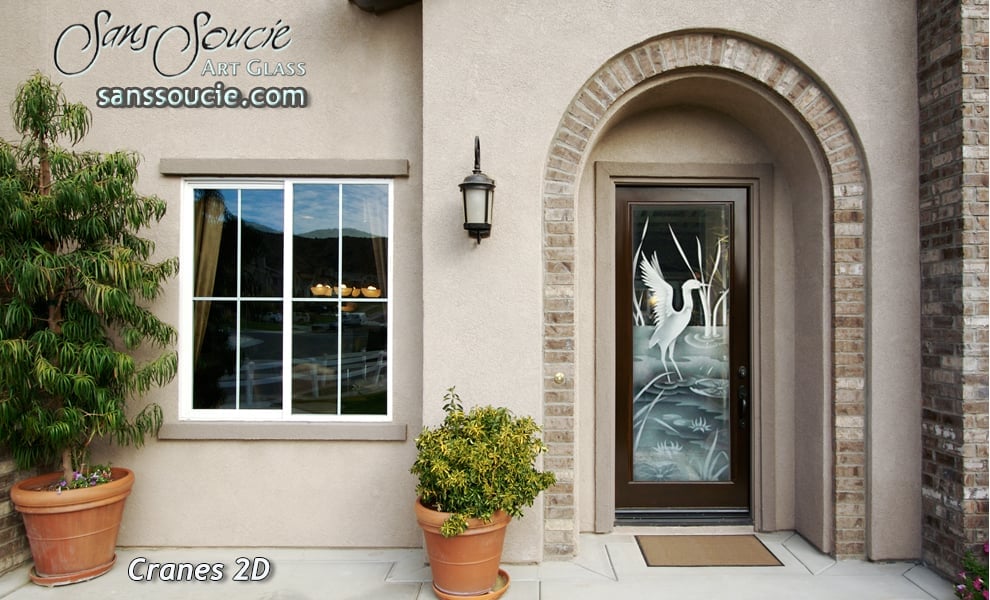
Another advantage of laminated glass is its ability to provide improved UV protection. Its construction helps block harmful UV rays, protecting your home and its contents from sun damage. Whether you choose tempered or laminated glass, both options guarantee the safety and security of your glass doors.
Enhancing the Security of Glass Doors
In addition to safety glass options, there are several methods to enhance the security of glass doors. Applying security film, using reinforced frames, and upgrading locks can all contribute to a more secure and protected home.
Now, let’s dig into the details of each of these security-enhancing methods.
Security Film
Security film is a protective layer applied to the glass surface, making it more resistant to penetration and retaining shattered pieces in place. This added protection increases the security of glass doors and deters burglars and intruders from attempting to gain entry. Security film is available from various manufacturers, all offering strengthened glass and increased safety.
To install a security film, follow these steps:
- Clean the glass.
- Measure and cut the film.
- Apply the film to the door.
- Remove air bubbles with a squeegee.
- Trim any excess film.
- Let it dry and stick to the glass.
This simple upgrade can significantly improve the security of your glass doors.
Reinforced Frames
Reinforced frames play a crucial role in strengthening the door’s structure and making it more resistant to forced entry. Materials such as steel strips, metal or wood reinforcements, and steel plates can be used to reinforce door frames, providing added security and peace of mind.
There are several methods available to reinforce glass door frames, including:
- Impact-resistant metal security framing
- Checking and reinforcing the doorjamb and strike plates
- Securing the hinges with safety studs or corrugated pins
- Using metal bars and grills
These enhancements not only improve security but also contribute to the longevity of your glass doors.
Upgraded Locks
Upgraded locks, such as deadbolts and smart locks, provide an extra layer of security for glass doors. Some options to consider are:
- Deadbolts: These locks offer enhanced protection by requiring a key to unlock or lock the door from the outside, making it more difficult for intruders to gain access.
- Smart locks: These locks can be controlled remotely through a smartphone app, allowing you to lock or unlock your door from anywhere.
- Strengthening deadbolts: You can further increase the effectiveness of deadbolts by using longer screws and sturdier strike plates.
By upgrading your locks, you can improve the security of your glass doors and help protect your home.
Smart locks offer keyless entry and fingerprint recognition, providing the highest level of security and convenience. These advanced locks deter potential break-ins and make sure that only authorized individuals can access your property. Upgrading your locks is a simple yet effective way to increase the security of your glass doors.
Privacy and Glass Door Options
Privacy is often a concern when it comes to glass doors. However, options such as frosted glass and rain glass provide an ideal solution, obscuring visibility while still allowing natural light to enter.
Now, let’s delve into the details of these privacy solutions and their advantages.
Frosted Glass
Frosted glass offers a semi-opaque finish, providing privacy without sacrificing natural light. Created through sandblasting or acid etching, frosted glass scatters light, making the glass appear opaque and limiting visibility while allowing light to pass through. This makes frosted glass an excellent choice for interior or exterior doors where privacy is desired.
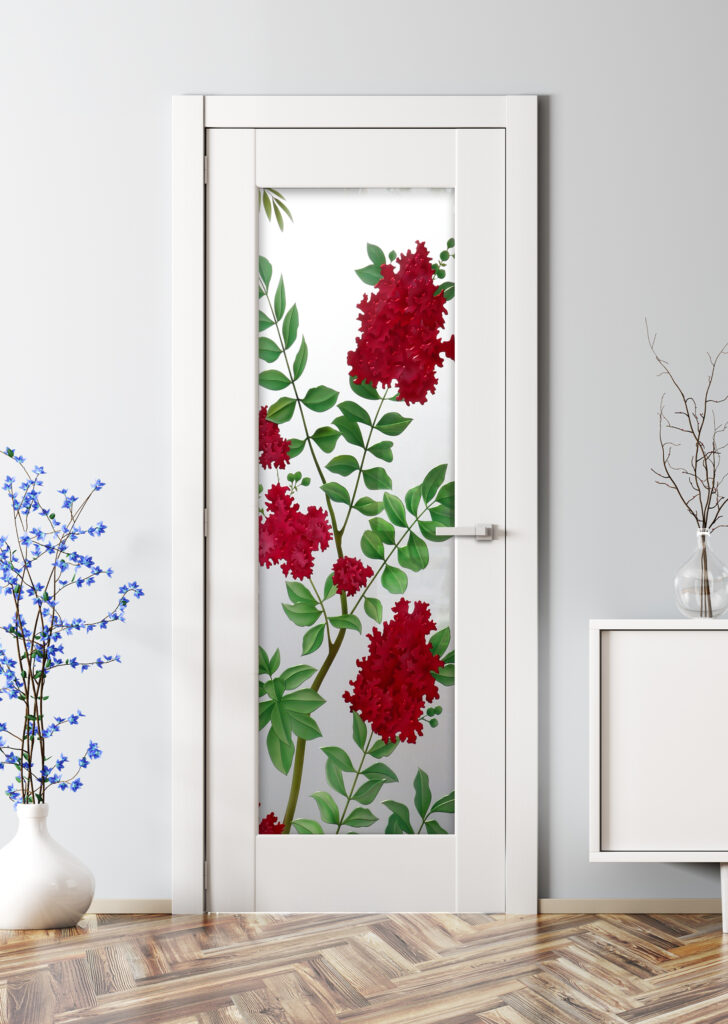
In addition to its privacy benefits, frosted glass is also versatile, available in a variety of patterns and designs. Some popular options include:
- Geometric patterns
- Floral designs
- Abstract shapes
- Custom designs
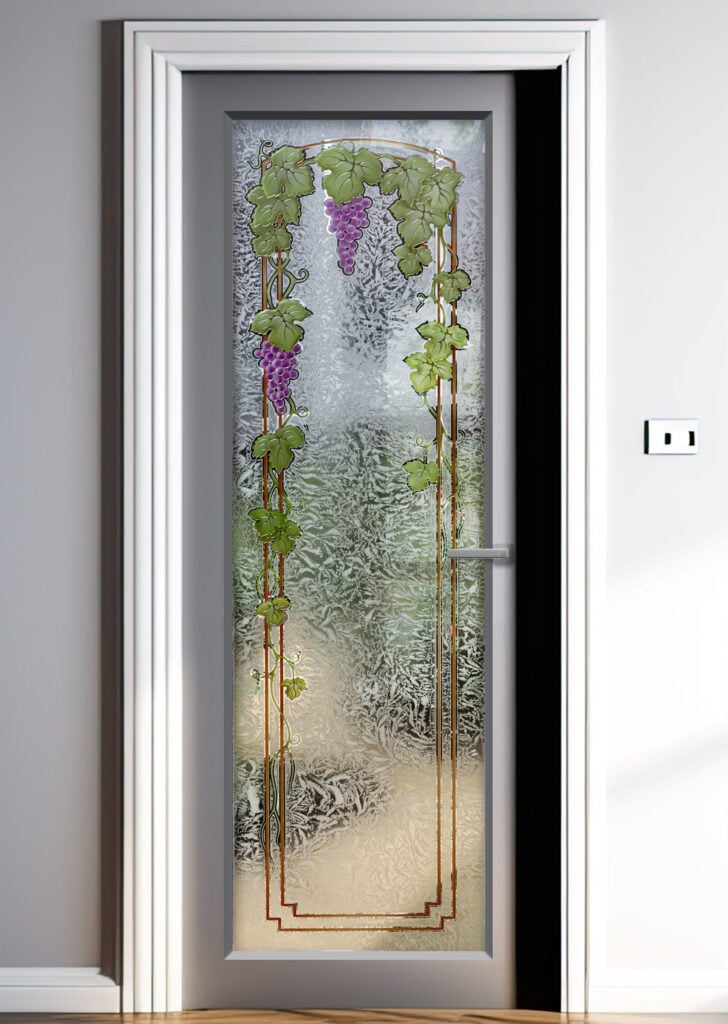
Here at Sans Soucie we can take your desired design and create it into your dream frosted glass door! We offer 3 glass finishes such as: clear, glue-chipped, and frosted. Each of these finishes (a.k.a. glass backgrounds), provide different levels of privacy and texture. Our clear glass finishes we consider not private, our gluechipped glass is considered semi-private, and our frosted glass finish provides 100% privacy.
The total privacy provided by frosted glass is why it is a popular choice for homeowners. When selecting frosted glass you’ll never have to sacrifice your door design for function. You can have both!
Rain Glass
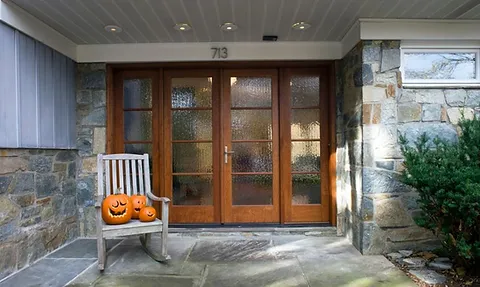
Rain glass features a textured surface that distorts visibility, creating a sense of privacy while maintaining light transmission. Its pattern resembles streaks of raindrops, adding a unique aesthetic to any glass door. Rain glass is typically made using tempered glass, ensuring strength and impact resistance.
Rain glass is suitable for various types of door glass, including fiberglass doors, front doors, shower doors, and sliding doors. Its distinctive appearance and privacy features make it an attractive option for homeowners looking for a stylish and practical solution for their glass front door.
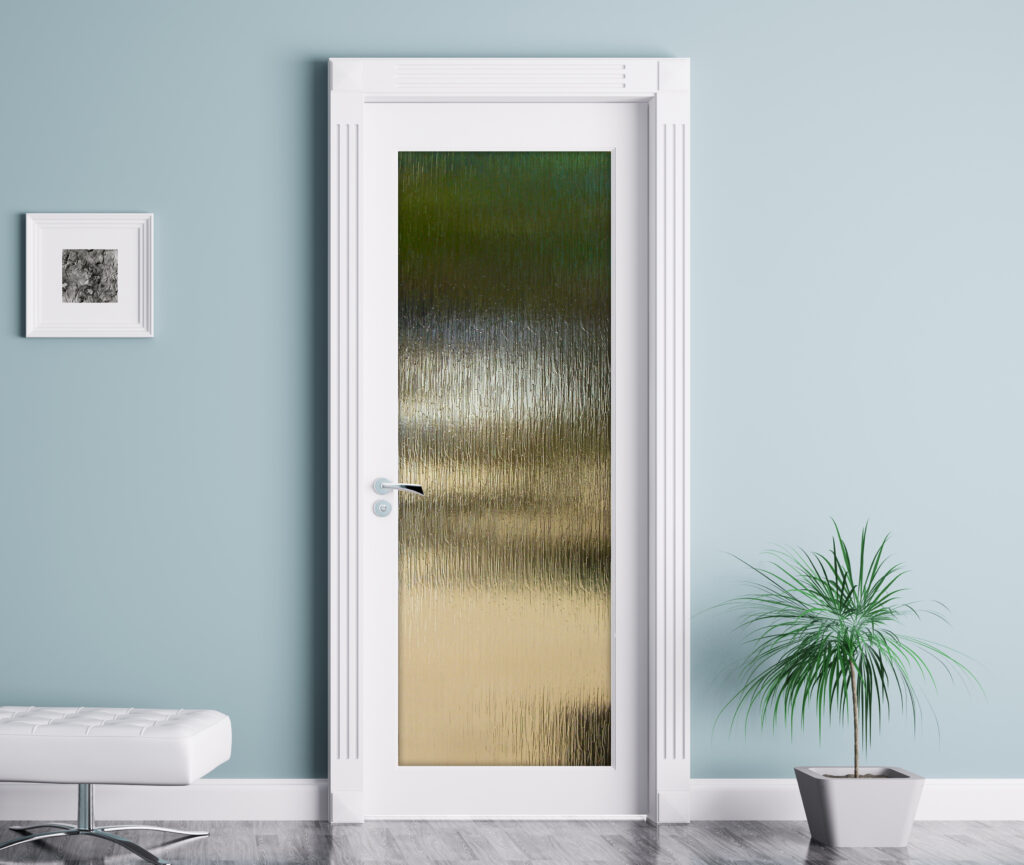
With rain glass, you can enjoy the benefits of natural light while preserving privacy in your home.
Energy Efficiency and Glass Doors
Energy efficiency is an important consideration for any homeowner. Insulated glass and low-E coatings are excellent options for improving the energy efficiency of glass doors.
Let’s discuss how these elements can contribute to reducing energy expenses and creating a comfortable indoor ambiance.
Insulated Glass
Insulated glass consists of multiple panes separated by a gas-filled space, reducing heat transfer and improving energy efficiency. These glass panes are held together by a spacer material, creating a thermal barrier between the interior and exterior of your home. This barrier helps maintain indoor temperatures and minimize the need for heating or cooling, resulting in a more energy-efficient home.
Insulated glass doors provide a multitude of benefits, including:
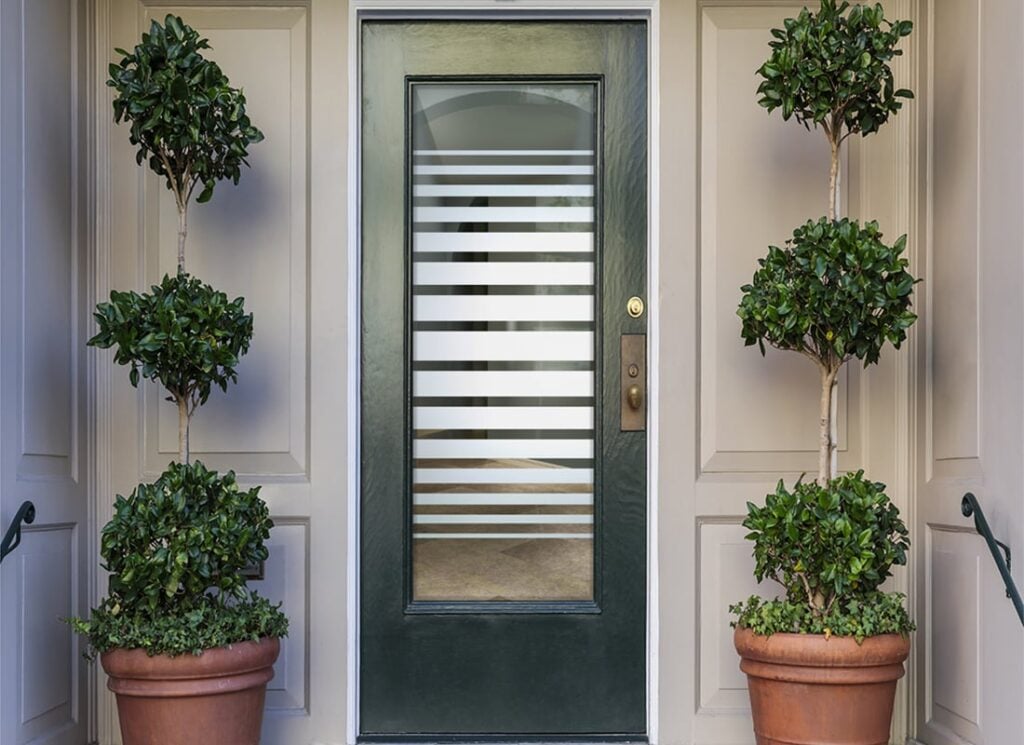
- Improved insulation
- Enhanced noise reduction
- Increased security
- Greater energy efficiency
- UV protection
By choosing insulated glass for your doors, you can enjoy a comfortable living space while reducing your energy costs.
Low-E Coating
Low-E (low-emissivity) coatings are thin, transparent layers applied to glass doors that minimize the amount of ultraviolet and infrared light that passes through the glass. These coatings help regulate indoor temperatures and reduce energy costs by:
- Preventing heat transfer between the interior and exterior of your home
- Minimizing the amount of heat that enters your home during hot weather
- Retaining heat inside your home during cold weather
By installing glass doors with Low-E coatings, you can create a more energy-efficient and comfortable living environment.
The application of low-E coatings can be achieved through pyrolytic deposition or sputtering processes, with the coating being applied to the glass during production or at a later stage. So, by incorporating low-E coatings in your glass doors, you can create a more energy-efficient home while enjoying all the benefits of natural light and beautiful views.
Summary
In conclusion, glass doors not only enhance the aesthetics of your home but can also be safe, secure, and energy-efficient. By understanding the various types of glass doors, choosing the right safety glass, and implementing security enhancements, you can enjoy the beauty of glass doors without compromising on safety and privacy. Don’t let misconceptions about glass doors hold you back from embracing their elegance and functionality – with the right choices, your home can be a secure and inviting haven.
Frequently Asked Questions
How safe are doors with glass?
Glass front doors are generally safe since they are 6x harder to break than windows, and if broken, the glass is one of the loudest to break. Additionally, many glass doors come with security film that helps hold the glass together in case it is broken.
How do you make a glass door safe?
Secure your sliding glass door by applying a shatterproof window film, adding a rod or a deadbolt lock, installing security bars in the track, applying one-way window film, installing glass break detectors or door sensors, maintaining the track and installing a better lock.
What are the pros and cons of glass front doors?
The advantages of having a glass front door include extra natural light and aesthetic appeal; however, they can also compromise security, reduce privacy, and require more maintenance.
Does glass in doors need to be safety glass?
Yes, glass in doors needs to be safety glass in order to meet building regulations requirements and ensure it breaks safely.
What types of privacy options are available for glass doors?
Frosted and rain glass are two effective options for providing privacy while still letting in natural light through glass doors.

Sans Soucie Art Glass: A Legacy of Craftsmanship and Innovation
Family-owned and operated since its inception in 1976, Sans Soucie has solidified its place as the industry frontrunner in the realm of sandblast frosted glass, carved, and hand-painted glass. Pioneering the art of turning ordinary glass into breathtaking “Works of Art Captured in Glass”, we have garnered acclaim both nationally and worldwide.
Sans Soucie has proudly undertaken tens of thousands of residential projects, delighting homeowners not just in the U.S., but internationally as well. Their portfolio also showcases an impressive range of commercial commissions, serving diverse sectors such as the service industry, hospitals, restaurants, museums, hotels, and libraries. Notably, Sans Soucie’s exquisite craftsmanship even graces a tribute room aboard the USS George HW Bush CVN 77.
In 2010, Sans Soucie ventured into selling slab and prehung doors, further solidifying their presence in the home decor space. Recognizing the complexities associated with slab and prehung doors, Sans Soucie introduced their innovative Door Designer Tool. This user-friendly tool has since transformed door designing into a fun and effortless experience, allowing homeowners everywhere to craft doors that resonate with their personal style.
In essence, Sans Soucie Art Glass is not just a brand; it’s a testament to unparalleled craftsmanship, innovation, and dedication to the art of glass design.
With free shipping to most states and worldwide shipping options from our base in Palm Desert, California, our extensive product range, which includes glass front doors, interior prehung doors, interior slab doors, pantry doors, interior glass doors, sliding glass barn doors, windows, shower doors, shower partitions and shower enclosures, frameless glass entry doors, decorative mirrors, glass signs, glass dining tables and glass coffee tables stands testament to our unwavering dedication to excellence.
Explore the world of Sans Soucie, where every piece of glass tells a story, and where history, craftsmanship, and innovation seamlessly blend.
Copyright © 2023, Sans Soucie Art Glass. All rights reserved.
